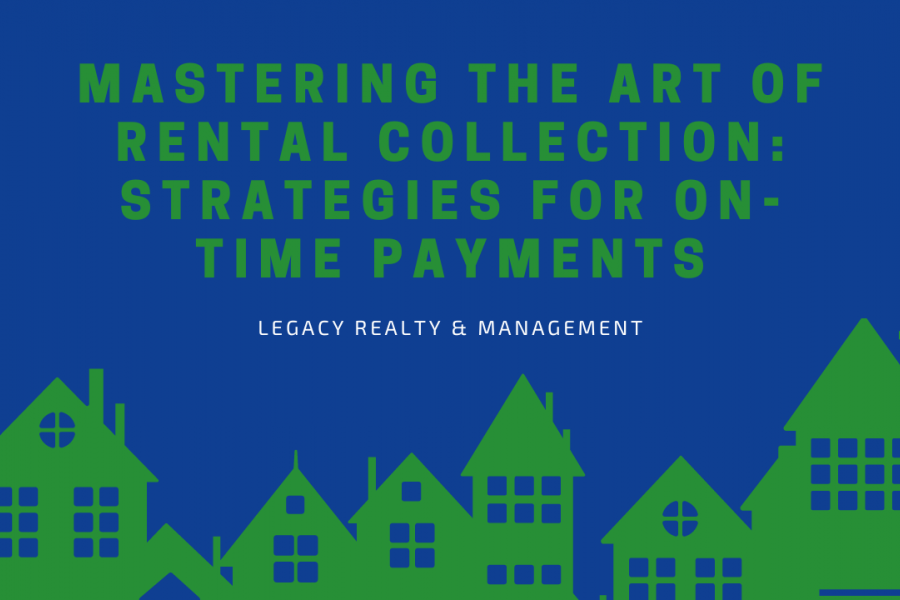
Managing a rental property can be rewarding, but collecting rent payments on time is often one of the biggest challenges landlords face. Delayed or missed rent payments can quickly disrupt your cash flow and create financial strain, making it difficult to cover expenses like mortgages, maintenance, and utilities.
Mastering the art of rental collection is crucial for maintaining a successful landlord-tenant relationship. This article will explore proven strategies to streamline your rent collection process and ensure timely payments, fostering a harmonious and profitable rental experience.
Choose Tenants Carefully
The foundation of a successful rental business lies in selecting reliable and responsible tenants. A thorough screening process can significantly reduce the likelihood of late or missed payments. Conduct comprehensive background checks, verify employment and income sources, and carefully review credit reports and rental histories.
These measures will provide valuable insights into a prospective tenant's financial responsibility and payment habits, allowing you to decide who to rent to. Don't be tempted to skip this crucial step, even if you're eager to fill a vacancy quickly.
Taking the time to vet potential tenants properly can save you countless headaches and financial losses. Look for tenants with a track record of consistent, on-time payments and responsible behavior in their previous rental situations.
Make Paying Rent Convenient
In today's fast-paced world, convenience is key. Offer multiple payment options that cater to your tenants' preferences, such as online portals, mobile apps, or automatic bank transfers. You should also consider accepting various payment methods, including checks, electronic transfers, or cash if necessary.

Providing various options shows you respect your tenants' differing needs and circumstances. Some may prefer the simplicity of setting up automatic payments, while others may appreciate the flexibility of making manual payments each month. Accommodate these preferences to make the payment process as easy as possible.
Inform Tenants on How to Pay Rent
Clear communication is essential in any successful landlord-tenant relationship. Provide detailed instructions on how to pay rent, including acceptable payment methods, due dates, and any applicable fees or penalties for late payments. This information should be included in the lease agreement and reiterated during move-in.
Consider creating a dedicated section on your website or distributing informational pamphlets to ensure tenants have easy access to the necessary details. There needs to be more room for clarity and understanding to avoid late payments.
Be proactive in educating your tenants about the rent payment process from the outset, and make sure they understand the consequences of failing to pay on time. This transparency can help set the right expectations and foster a sense of accountability.
Enforce a Late Fee
While you strive to cultivate a positive relationship with your tenants, it's crucial to establish boundaries and consequences for late payments. Implementing a reasonable late fee policy can serve as an effective deterrent and incentivize timely rent payments.

Clearly outline the late fee amount and when it will be charged in the lease agreement, ensuring that both parties know the consequences from the outset. Be consistent in enforcing your late fee policy across all tenants to maintain fairness and avoid potential legal issues.
Late fees should be viewed as a last resort rather than a means to generate additional income. Use them judiciously and consider waiving them in cases of genuine hardship or extenuating circumstances.
Offer Incentives for Paying on Time
Positive reinforcement can be a powerful motivator. Consider offering incentives to tenants who consistently pay their rent on time. These incentives could range from small discounts or credits on their next month's rent to entry into a prize draw or a complimentary cleaning service.
By rewarding responsible behavior, you foster a culture of promptness and strengthen your relationship with your tenants. Incentives don't have to be costly or elaborate; even small gestures can go a long way in showing your appreciation for reliable tenants.
Get creative with your rewards and tailor them to your audience. For example, offer a monthly gift card drawing for on-time payments or provide a discount on rent for tenants who have maintained a perfect payment record for a year.
Discuss Late Payments With Your Tenants
Open and respectful communication is key when dealing with late payments. If a tenant falls behind on rent, promptly reach out to understand the situation and explore potential solutions. Listen to their concerns and circumstances with empathy, as unforeseen events or financial hardships can occasionally arise.

Determine if a temporary payment plan or alternative arrangement can be reached to avoid escalating the issue further. Approaching late payments with compassion and a willingness to find mutually agreeable solutions can often yield better results than immediately resorting to strict enforcement measures.
However, it's important to strike a balance between being understanding and maintaining firm boundaries. Make it clear that while you're willing to work with tenants facing temporary difficulties, chronic late payments cannot be tolerated.
Stick to Your Rental Lease Terms
While maintaining a positive landlord-tenant relationship is important, it's equally crucial to uphold the terms of your rental lease agreement. Suppose a tenant consistently fails to pay rent on time or violates the agreed-upon terms.
In that case, you may need to consider enforcing stricter measures, such as issuing formal notices or initiating eviction proceedings in accordance with local laws and regulations.
Consistently following your established policies and procedures will demonstrate your commitment to fair and responsible property management. Enforcing lease terms is important for protecting your investment and maintaining order and respect within your rental community.

Tenants who observe that rules are consistently applied are more likely to comply themselves, creating a more harmonious living environment for all.
Conclusion
Mastering the art of rental collection is essential for the long-term success of your rental business. You can cultivate a culture of on-time rent payments by implementing thoughtful strategies, such as thorough tenant screening, convenient payment options, clear communication, reasonable late fee policies, positive incentives, open dialogue, and adherence to lease terms.
Remember, a proactive and organized approach to rent collection ensures a steady cash flow and fosters positive landlord-tenant relationships built on mutual respect and accountability.
At Legacy Realty and Management, we understand the importance of these principles and have built our reputation on providing exceptional property management services that prioritize timely rent collection and strong tenant relationships. Stay vigilant, be consistent, and always strive for open communication.
At Legacy Realty and Management, we are committed to delivering excellence to every property we manage. Contact us today to get started.
